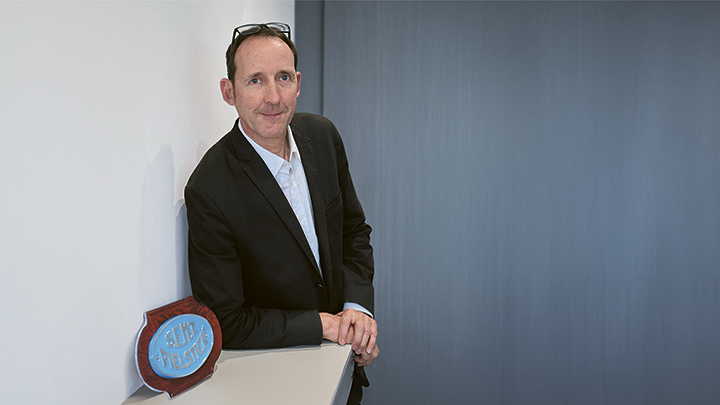In this interview, hydrogen expert Professor Christopher Hebling explains why there is no getting around green hydrogen as a fuel.

MAN People: Professor Hebling, the idea of producing energy from hydrogen has been around for a long time already. Why has it not caught on before now?
Professor Hebling:Electrolyzers have in fact been around since the 1920s. During the oil crises in 1973 and 1979, there were discussions about using hydrogen in order to get away from oil. But it is only now that the international community has made a global commitment to becoming climate-neutral by 2050. It is imperative to bear in mind, however, that the producers of fossil energy, the largest and most powerful industry in the world, will have to be prepared to go along with this.
The effects of climate change are already being felt. How much time do we have?
So far, we have been much too slow to reorganize our energy systems, despite a great willingness to do so among everyone involved. What gives hope is that the big players, that is China, Russia and India, also act in concert with the rest of the world.
Around 35 countries, including Germany, have their own hydrogen strategy. Worldwide, 300 million euro is going to be invested in production and infrastructure in the next three or four years.
What exactly is happening?
Around 35 countries, including Germany, have their own hydrogen strategy. Worldwide, 300 billion euro is going to be invested in production and infrastructure in the next three or four years.
What path is Europe following?
The most important thing is to activate energy partnerships – with Australia, for example, but also the countries of North and West Africa and the Middle East. These countries have at their disposal vast areas and resources for producing green hydrogen.
What do you see as the main tasks of government in the expansion of hydrogen technology?
Government must put the framework conditions in place so that the market can develop. Investments in infrastructure, as a down payment on the production and distribution that can be expected so to speak, will also be very important. I see this as being the duty of the state, not private investors.
Is the goal of an economy that is completely carbon free really achievable or a mere possibility?
It is the only chance we have if we want to keep earth livable for future generations. So there is no alternative to a sustainable energy world.

Personal details:
Professor Christopher Hebling heads up the Hydrogen Technologies Division, which boasts more than 140 scientists, engineers and students, at the Fraunhofer Institute in Freiburg, Germany. He is one of the experts most in demand when it comes to hydrogen and integrated energy systems.
Explore more topics
-

Groundbreaking retrofit project
MAN PrimeServ colleagues successfully converted the engine of a 15,000-TEU container ship to run on methanol at a shipyard in China.
-

Scorpène MAN ES France propels the Indian Navy
Two new 12PA4 200 SMDS engines for the Indian Navy entered the order book of MAN ES France last summer. The signing of a new contract with the Indian shipyard Mazagon Dock Shipbuilders Limited, as part of the P75 Scorpene India program is very good news for the Marine business.
-

Better than reality
As a virtual and augmented reality developer at the Augsburg site, Carolin Lirsch sees to it that we can exploit the possibilities offered by virtual technologies profitably for ourselves and our customers.
